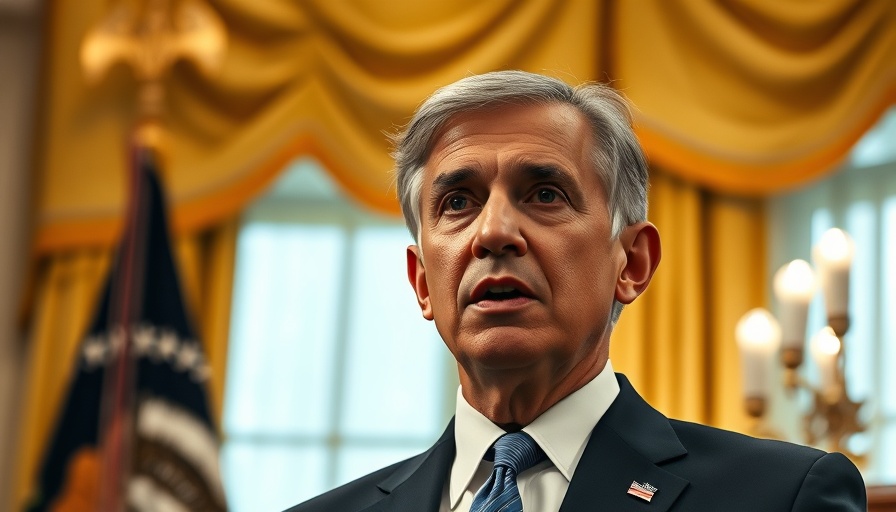
President Biden's Prostate Cancer Diagnosis: A Sobering Reality
In a significant health announcement, former President Joe Biden revealed that he has been diagnosed with a more aggressive form of prostate cancer. The diagnosis came shortly after the President reported increasing urinary symptoms, culminating in a medical evaluation that discovered a prostate nodule. The health implications of this diagnosis are profound, not just for Biden personally but for the nation as a whole.
Understanding Prostate Cancer: Facts and Figures
According to the National Cancer Institute, prostate cancer is the most commonly diagnosed cancer among men, affecting approximately one in nine men in the United States. While many cases are slow-growing, Biden's diagnosis features a Gleason score of 9, categorized as a Grade group 5, indicating a high likelihood of aggressiveness in the cancer’s progression. This type of cancer accounts for about 30% of all cancer deaths in men, emphasizing the serious nature of the diagnosis.
What Does Gleason Score Mean?
The Gleason score is crucial in determining the aggressiveness of prostate cancer. A score between 2 and 10 helps doctors decide the best course of treatment. Scores of 8 to 10 represent high-grade cancers that are expected to grow quickly. Biden’s diagnosis indicates that doctors will consider aggressive treatment options, yet the positive note is that the cancer is still hormone-sensitive, which allows for effective management and treatment pathways.
Support and Responses from Leaders
The reaction to Biden's diagnosis has been one of unity and support across the political spectrum. Notable mentions include Vice President Kamala Harris, who has expressed optimism about Biden's resilience, stating, “Joe is a fighter.” Similarly, former President Donald Trump and Minnesota Governor Tim Walz offered their heartfelt wishes for a speedy recovery. The bipartisan support showcases not just political civility but a shared humanity, emphasizing the collective wish for Biden's health and well-being.
Exploring Treatment Options
Given the aggressive nature of Biden's cancer, treatment options are likely to be extensive and complex. Common approaches may include hormone therapy, chemotherapy, radiation, or even surgery. Biden and his medical team will need to evaluate these options thoughtfully, weighing the potential benefits against the risks associated with each method. The management of such a diagnosis requires a coordinated effort from health professionals with expertise in oncology, ensuring that treatment is not only effective but also tailored to the President’s needs.
Implications for Public Health Awareness
This announcement sheds light on the importance of regular health screenings and proactive management of health issues, especially as men age. Prostate cancer symptoms can often go unnoticed until they become significant, leading to advanced stages of the disease. Public health campaigns aimed at educating men about the risks, symptoms, and importance of annual screenings should be emphasized in light of Biden’s diagnosis. Advocacy groups have already begun ramping up campaigns to ensure men prioritize their health.
Community Impact: Pennsylvania’s Response
Biden’s roots in Scranton, Pennsylvania, add a deeper layer to this diagnosis. As the state continues to engage with his political legacy, the implications of his health could resonate on personal levels for many residents. Emotional responses from the community highlight the bond many Pennsylvanians feel towards Biden, making this not just a political concern but a deeply personal one. Local healthcare providers may also see an uptick in men seeking screenings, reflecting a raised awareness stemming from this news.
Looking Ahead: What’s Next for Biden?
Moving forward, it will be crucial for Biden to remain as transparent as possible about his treatment journey, not only for his family's sake but also for the public interest. As he embarks on this treatment path, he may find himself serving as a beacon of hope for others facing similar health challenges. The resilience he exemplifies could allow him to emerge stronger, reinforcing his position and inspiring many individuals battling similar health adversities.
Conclusion: A Call to Action for Health Awareness
President Biden’s diagnosis brings to light the vital discussion surrounding men’s health, specifically the importance of regular check-ups and awareness of prostate cancer risks. Whether you’re a resident of Pennsylvania or a visitor captivated by the state’s developments, let this be a reminder to prioritize health screenings. Stay informed, advocate for health education, and remember that detecting issues early can lead to better outcomes. Health should always be a priority — for husbands, fathers, brothers, and leaders. Stay connected with local health initiatives to learn more about prostate cancer awareness and screening opportunities in your area.
 Add Row
Add Row  Add
Add 




 Add Row
Add Row  Add
Add 

Write A Comment